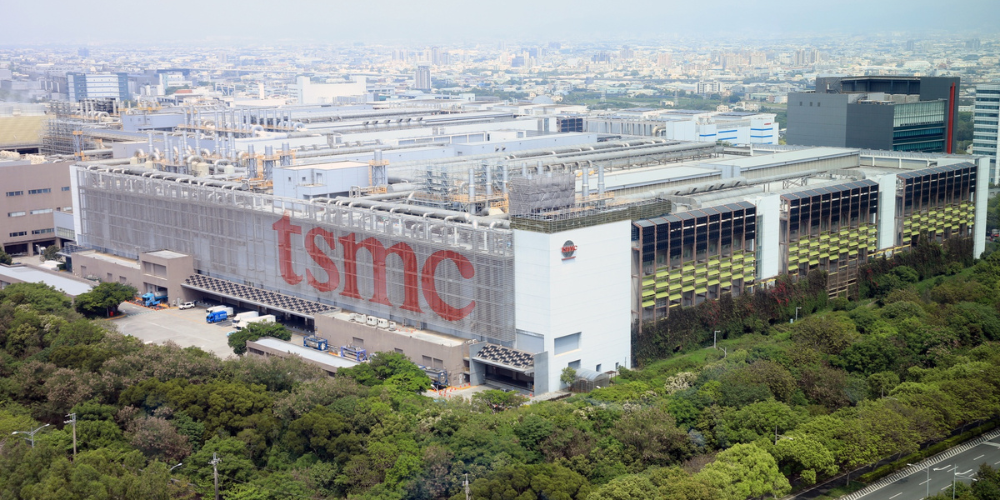Bernstein Elevates TSMC Target Amid AI Demand Surge and Strategic Moves by Tech Giants
- 04/07/2024

The burgeoning interest in AI products has prompted Bernstein to raise the share price targets for Taiwan Semiconductor Manufacturing Company (TSMC). With an increase from $150 to $200, Bernstein attributes this boost to TSMC's robust demand for its N3 semiconductor technology. Additionally, the rising need for smartphone processors and an extension in packaging capacity are expected to propel TSMC's revenue growth, allowing the company to surpass third-quarter estimates. This price upgrade is supported by reports from Taiwanese supply chain sources, indicating that TSMC is increasing its packaging and top-tier process prices due to solid demand trends.
Bernstein's share price target increase depends on a few assumptions. First, the firm suggests that TSMC’s 3-nanometer and 5-nanometer capacities are at full utilization. Such utilization should enable TSMC to exceed its third-quarter guidance and potentially grow its full-year revenue by 25%. While the increasing demand for data center AI products was anticipated, an unexpected rise in AI demand for smartphone products also contributed to this positive outlook.
Different from data center AI products, which mainly involve heavy-duty accelerators developed by companies like NVIDIA, Intel, and AMD, smartphones utilize AI processors known as neural engines. Although AI is a relatively fresh trend in the tech industry, companies such as Apple have long incorporated these engines into their products to support functionalities like image processing. This long-standing integration has unknowingly set the stage for current demand surges.
Moreover, a significant factor in Bernstein's upgrade of TSMC's share price is Intel's strategic moves. The world’s leading chip manufacturer, Intel, is enhancing its manufacturing processes and, meanwhile, outsourcing some production to TSMC. An accelerated launch of Intel’s Lunar Lake products and a price increment can result in TSMC's earnings per share escalating by another 26% in 2026. Lunar Lake is projected to amplify the need for TSMC’s N3 and N6 products, despite Intel transitioning the production of its Panther Lake compute tiles to its own 18A manufacturing process. Nevertheless, TSMC is anticipated to retain demand for other Intel tiles.
Notably, AMD is another significant TSMC customer, utilizing N2, or 2-nanometer, chip technologies, which places it alongside Apple as an early adopter. Furthermore, TSMC's N3 technology, with its advanced performance and efficiency variants called N3P and N3E, is expected to face price hikes due to customer reliance beyond Apple. Bernstein estimates TSMC’s forward price-to-earnings ratio at 20x, leading to setting a share price target of NT$1,080 or $200.
According to Bernstein, TSMC’s revenue growth by 2025 is projected at 20%, accompanied by a 26% rise in earnings per share due to improved efficiency in the N3 process. Additionally, CoWoS packaging is forecasted to help with revenue growth, as it allows TSMC to benefit from higher wafer revenue driven by increased demand.
Latest Articles
-
![Arknights Endfield: Crafting Tactical Mastery Through a Dynamic Arsenal]() Arknights Endfield: Crafting Tactical Mastery Through a Dynamic Arsenal The world of Arknights Endfield is one where tactical acumen and precise equipment management intertwine to form the backbone of every victory. Operators must rely not only on their unique skills but also on an impressive array of specializ...
Arknights Endfield: Crafting Tactical Mastery Through a Dynamic Arsenal The world of Arknights Endfield is one where tactical acumen and precise equipment management intertwine to form the backbone of every victory. Operators must rely not only on their unique skills but also on an impressive array of specializ... - How-to
- Frederick Clark
- 20/02/2026
-
![Reviving the Past: A Modern Twist on a Classic 3D Gaming Experience]() Reviving the Past: A Modern Twist on a Classic 3D Gaming Experience An exciting development has emerged for fans of classic gaming as an innovative version of a notorious 3D system becomes available on a modern console. This new adaptation offers an opportunity to experience an era once marked by mixed succ...
Reviving the Past: A Modern Twist on a Classic 3D Gaming Experience An exciting development has emerged for fans of classic gaming as an innovative version of a notorious 3D system becomes available on a modern console. This new adaptation offers an opportunity to experience an era once marked by mixed succ... - News
- Eleanor Wilson
- 20/02/2026
-
![Sony Santa Monica Sparks Excitement with Hints of a New Main Installment and Remake Trilogy]() Sony Santa Monica Sparks Excitement with Hints of a New Main Installment and Remake Trilogy The gaming community is abuzz with recent whispers coming from Sony Santa Monica, suggesting that another major installment in the long-celebrated series might be on the horizon. Recent announcements have only deepened the intrigue surround...
Sony Santa Monica Sparks Excitement with Hints of a New Main Installment and Remake Trilogy The gaming community is abuzz with recent whispers coming from Sony Santa Monica, suggesting that another major installment in the long-celebrated series might be on the horizon. Recent announcements have only deepened the intrigue surround... - News
- Eleanor Wilson
- 20/02/2026






